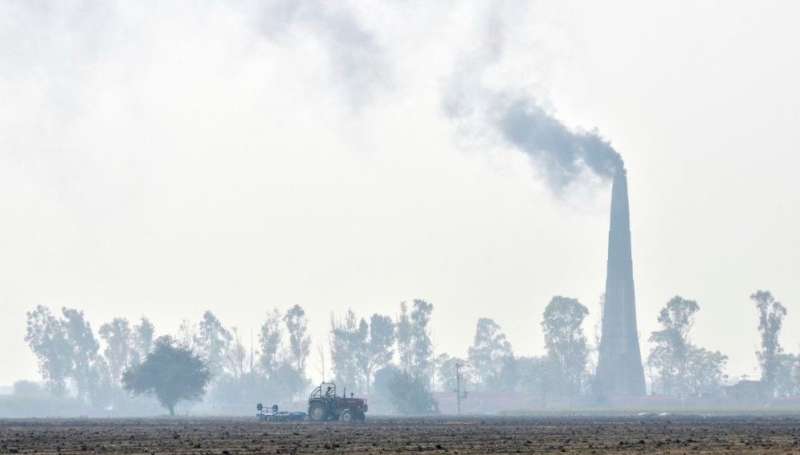This article has been reviewed according to Science X's editorial process and policies. Editors have highlighted the following attributes while ensuring the content's credibility:
fact-checked
proofread
COVID-19 lockdowns 'turned India greener'

India's drastic COVID-19 lockdowns had a silver lining. With polluting industries and vehicular movement halted, urban dwellers were treated to bright, blue skies and views of snow-clad Himalayan peaks, long obscured by thick smog.
There were other benefits from the clear skies. It led to enhanced greenery due to better photosynthetic activity, especially in the rural farmlands where crop production is dependent on sunshine.
The COVID-19 lockdowns offered a rare opportunity to study the links between air quality and surface greenness, says Jayanarayanan Kuttippurath, professor at the Indian Institute of Technology, Kharagpur and author of a study on the subject published in Applied Geography.
Kuttipurath says the study showed potential benefits for the climate. "Higher photosynthetic activity increases terrestrial carbon capture and sequestration. Stronger carbon sinks on land can balance the carbon cycle and help maintain ambient environmental and atmospheric conditions and this will help mitigate the effects of global warming and climate change," he explains to SciDev.Net.
Air pollutants block sunshine and affect the opening and closing of stomata, which regulate evaporation of water from the leaves as well as leaf surface temperature. Pollutants can also physically damage leaves, affecting chlorophyll content—all of which are detrimental to plant growth. Enhanced air pollution can even alter the species richness of the plant community in an ecosystem.
"Increased vegetation, particularly in croplands, in response to improved air quality, is a new insight," says Rahul Kashyap, co-author of the study. "Undoubtedly, maintaining good air quality will serve the cause of good public health and sustainability."
The IIT-Kharagpur scientists relied on satellite imagery to gauge changes in greenage as well as meteorological and air quality data before, during and after the lockdowns to arrive at their conclusions.
Air pollution has become a major concern for public health, ecosystems and climate change in India in recent years. Moreover, recent studies suggest that the air quality in rural India is getting affected by urban pollutants with serious implications for crop production.
It is time that policymakers woke up to the importance of cleaner air, comments Bikash Ranjan Parida, assistant professor at the department of geoinformatics, at the Central University of Jharkhand. He points to the fact that in 2022 six of the world's 10 most polluted cities were in India, starting with the capital city of New Delhi.
Serious efforts must be made to monitor vegetation dynamics at various spatial and temporal scales to comprehend fully both natural and manmade effects on vegetation cover, photosynthetic activity and crop productivity, the scientists say.
Such efforts are bound to go a long way in addressing climate change, global sustainability and food security at a global level.
More information: Rahul Kashyap et al, Improved air quality leads to enhanced vegetation growth during the COVID–19 lockdown in India, Applied Geography (2023). DOI: 10.1016/j.apgeog.2022.102869
Provided by SciDev.Net





















